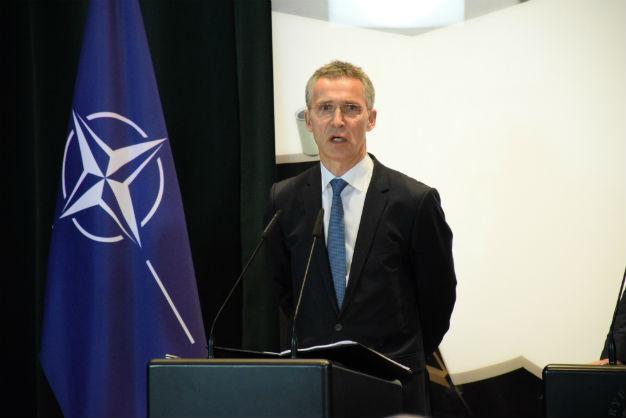NATO aid for Turkey’s defense set to be approved
BRUSSELS – Reuters

AA photo
A mission by NATO to send air defense support to Turkey is expected to be approved by the Western defense alliance’s council on Dec. 18, senior alliance sources said, adding that this was going to be done partly to minimize the risk of Ankara shooting down another Russian warplane while assuaging its fears of a spillover from the conflict in Syria.The mission, expected to be approved by the NATO council on Dec. 18, has been under preparation for 10 months, long before the incident with Russia, and NATO Secretary General Jens Stoltenberg has said it is not linked.
But NATO sources said the shooting down had galvanized allies to come forward with more support and tailor the assistance to help lower tensions between Moscow and Ankara by taking a role in managing Turkish airspace.
“NATO rules of engagement are more cautious than those of Turkey,” said one NATO source.
While the U.S.-led alliance publicly backed Turkey after its fighters downed a Russian bomber that strayed into its airspace from Syria on Nov. 24 in the first such incident since the Cold War, several allies were privately alarmed and urged restraint.
A Turkish official in Ankara said Turkey and NATO were looking to develop a system whereby problems in Turkish and NATO airspace could be avoided but it was too early to share details.
Stoltenberg said strengthening air defenses for Turkey, which has long expressed alarm over the civil war raging near its border, was a commitment that went back well before the shooting down of the Russian plane.
The package, set to be approved without debate, includes interceptor aircraft, Airborne Warning and Control System (AWACS) radar planes and a naval unit with command ships and frigates with anti-ship and anti-aircraft missiles.
It will have a dual function of defending Turkey while contributing to a U.S.-led coalition air campaign against the Islamic State of Iraq and the Levant (ISIL) in Syria and Iraq. But the NATO presence may also act as a soft constraint on Ankara.
“It’s a face-saving show of allied support for Turkey while trying to get them to behave more intelligently,” said Nick Witney, a former head of the European Defense Agency now at the European Council on Foreign Relations.
The shoot-down triggered a war of words between Moscow and Ankara and prompted President Vladimir Putin to impose trade and tourism sanctions on Turkey.
NATO allies do not dispute Ankara’s version of the facts, but they are keen to engage Russia in talks to avoid incidents that could flare from Moscow’s aggressive patrolling of alliance air borders around Turkey, the Baltic states and the North Sea.
















